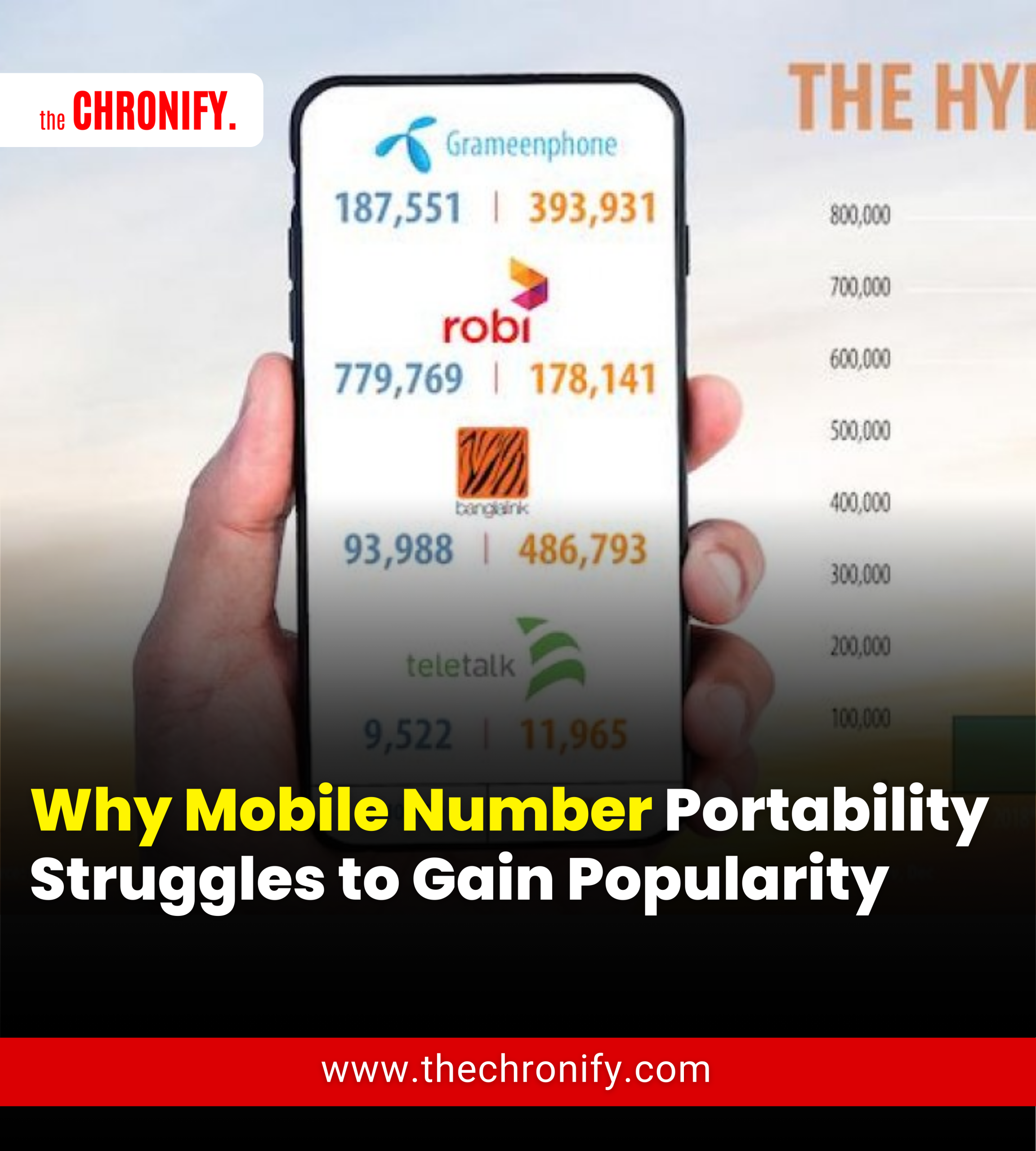Challenges and Hurdles Facing Mobile Number Portability in Bangladesh
Since its introduction in October 2018, Mobile Number Portability (MNP) has given mobile phone users in Bangladesh the option to switch network providers without changing their phone numbers. Initially, the service gained traction, with over 100,000 users porting their numbers in May 2019 alone. However, over time, the rate of number portability has sharply declined, with fewer than 4,000 users switching networks each month.
In the first year, around 700,000 numbers were ported, but it took over five years for this figure to double. Despite the availability of MNP for more than six years, less than 1% of Bangladesh’s active mobile subscribers have utilized the service.
Officials from Infozillion Teletech BD, the country’s sole MNP operator, have highlighted several factors that contribute to the service’s low popularity. They identified problematic regulations, flawed network structures, and uncooperative industry practices as primary reasons for the limited uptake of MNP.
Regulatory Barriers and Lack of Awareness
One major issue raised by Infozillion is the lack of awareness about MNP. Under the terms of the MNP license, both the telecom regulator, the Bangladesh Telecommunication Regulatory Commission (BTRC), and mobile operators are required to run public awareness campaigns. However, just before MNP was launched, the BTRC prohibited advertisements related to the service by mobile operators, preventing customers from learning about their rights to switch networks.
Brigadier General (Rtd) Md Mustafa Kamal, CEO of Infozillion Teletech, emphasized that such regulatory barriers should be removed to improve public knowledge of MNP. He argued that without sufficient awareness, customers remain unaware of their ability to switch operators, which prevents the service from reaching its potential.
Challenges with Operator Rejections
Another issue is the rejection of MNP requests by the operators that users wish to leave. Infozillion officials revealed that 45% of customer requests for network switching are being rejected by operators. This has led to frustration among users, who feel that they are being unfairly blocked from accessing MNP services. During a seminar on MNP, Infozillion officials suggested that the BTRC should impose a cap on rejection rates, limiting them to no more than 5%. They also called for penalties to be imposed on operators who reject MNP requests without valid reasons.
A sample of 22 customer complaints was presented, showcasing cases where operators had wrongfully denied MNP requests. These complaints serve as an example of the challenges customers face when attempting to switch mobile networks.
Accessibility and SMS Issues
Another obstacle for users is the accessibility of MNP services. Infozillion pointed out that many nearby customer service centers lack MNP kits, which are essential for processing number portability. While these centers continue to sell new SIM cards and offer regular SIM replacements, the lack of MNP kits makes the service less accessible to customers compared to other markets.
A significant challenge for users of ported numbers is the issue of receiving SMS. When a customer switches networks, SMS sent from other networks often fails to reach their ported number. This is due to the absence of an interconnection layer for SMS, unlike voice calls, which are routed through the Interconnection Exchange (ICX). Although ICX ensures that voice calls between different operators work smoothly, SMS messages face complications without such infrastructure.
In 2023, the BTRC mandated that all machine-generated SMS, such as one-time passwords (OTPs), be routed through a central platform managed by the MNP operator. However, only about 7% of daily machine-generated SMS are sent through this platform, while the majority are still sent directly by mobile operators.
Mobile Financial Service Providers’ Issues
Another problem users face is with mobile financial services, which are not connected to the central SMS routing platform. As a result, users with ported numbers often encounter difficulties receiving OTPs, which are essential for mobile banking and other financial services. This has led to frustration among customers who rely on OTPs for various transactions.
Mabroor Hossain, Managing Director of Infozillion, stressed the importance of addressing these issues to improve the demand for MNP services. He noted that people are unlikely to opt for number portability if they face difficulties in receiving important SMS messages, such as OTPs.
The Need for Regulatory Changes
To address these challenges, Infozillion Teletech has called for a series of regulatory reforms to streamline the MNP process. These include better coordination between mobile operators, improved accessibility to MNP services, and the establishment of a more robust infrastructure to handle SMS routing for ported numbers.
Without these changes, the potential of MNP in Bangladesh is likely to remain untapped. As it stands, the service faces significant barriers that prevent it from becoming a widely used option for mobile phone users in the country.

